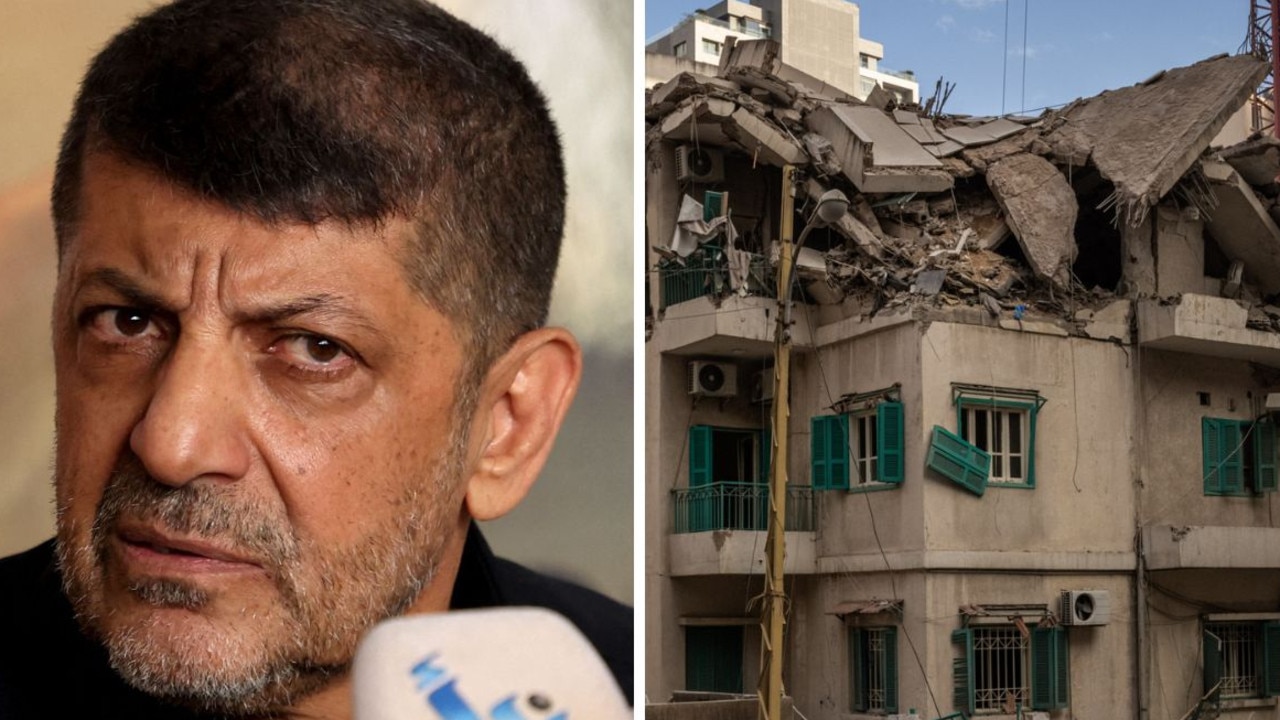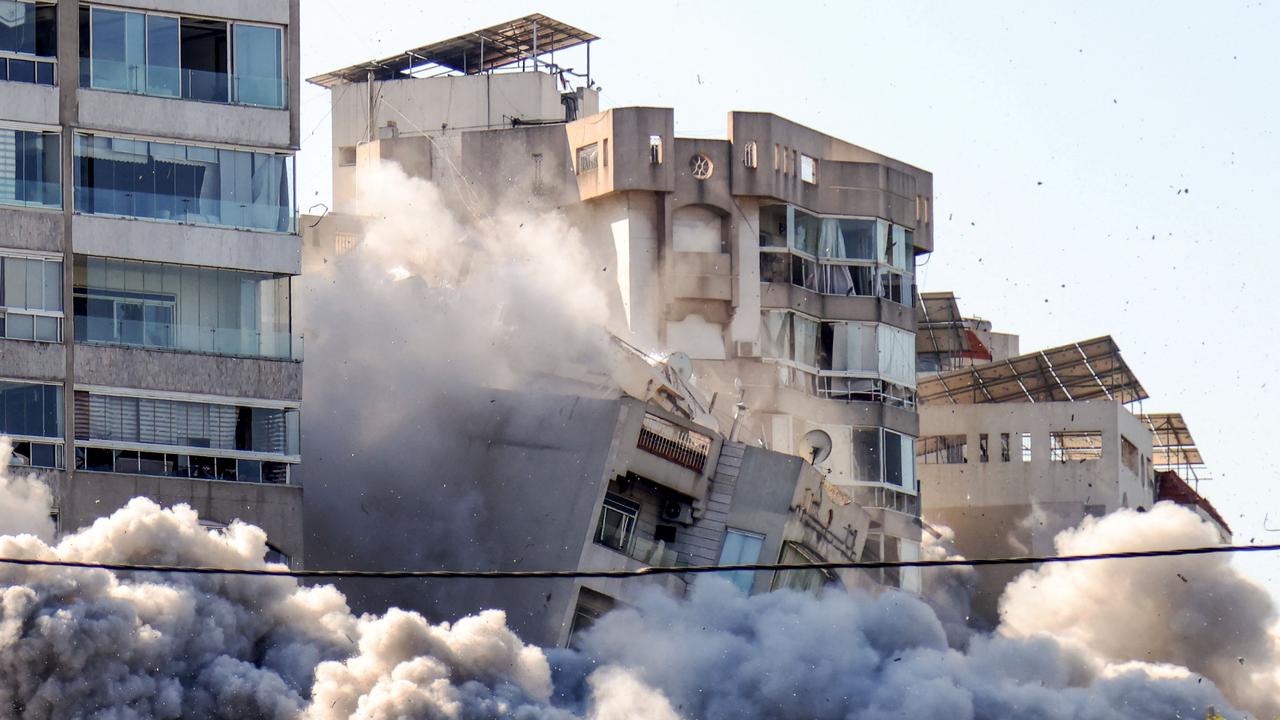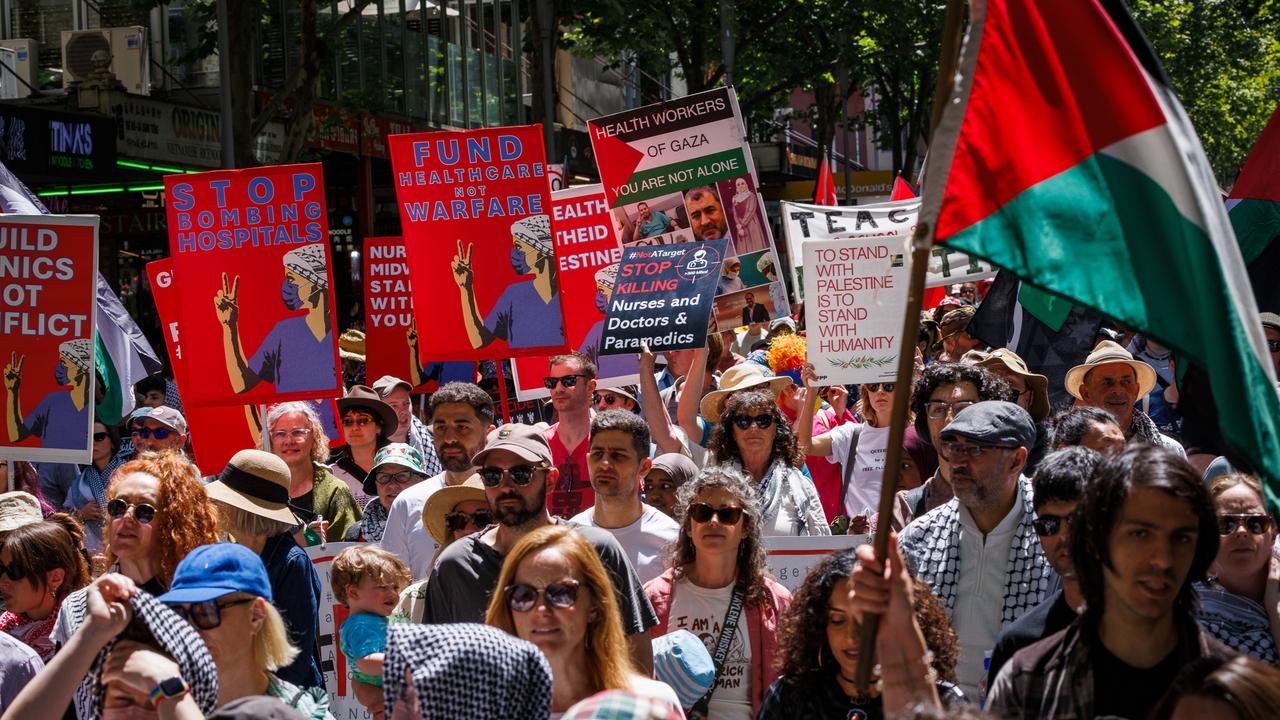Israel rejects Hamas ceasefire proposal, vows to continue Gaza war to ‘total victory’
Israel has made a decision on a ceasefire proposal from Hamas, claiming that “total victory” over the Palestinian terror group was just months away.
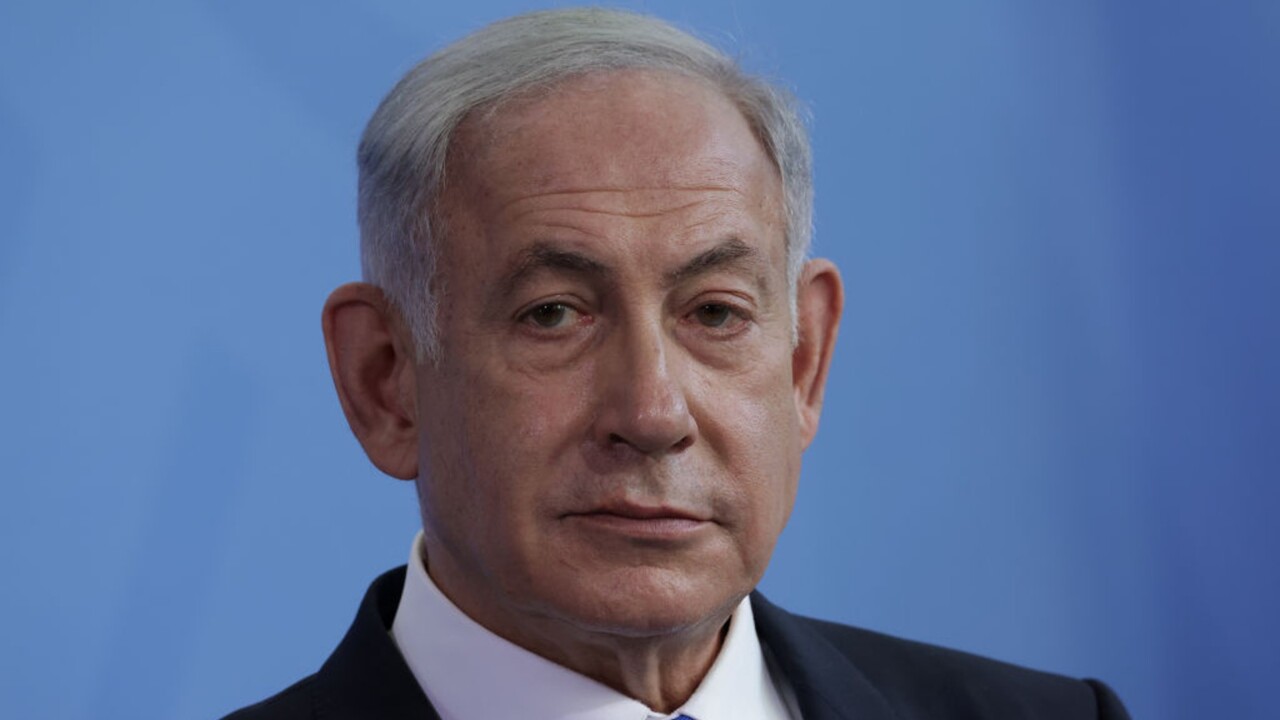
A senior Lebanon-based official in Palestinian militant group Hamas said on Wednesday that Israeli Prime Minister Benjamin Netanyahu’s continued pursuit of war in Gaza showed the goal was “genocide” against Palestinians.
Mr Netanyahu’s “insistence on continuing the aggression totally confirms that the goal of the aggression on Gaza is genocide against the Palestinian people”, Osama Hamdan told a news conference in Beirut.
“We will exert every effort to protect our people, whether through the resistance on the ground or … political efforts to stop the aggression,” Mr Hamdan added.
Mr Netanyahu on Wednesday dismissed Hamas’ demand for a ceasefire and ordered troops to prepare to move on the city of Rafah in Gaza’s far south, where more than one million Palestinians have sought refuge.
The Israeli leader’s comments appeared to dampen US Secretary of State Antony Blinken’s hopes for a ceasefire and hostage release deal, even as he cautioned that more negotiations were needed.
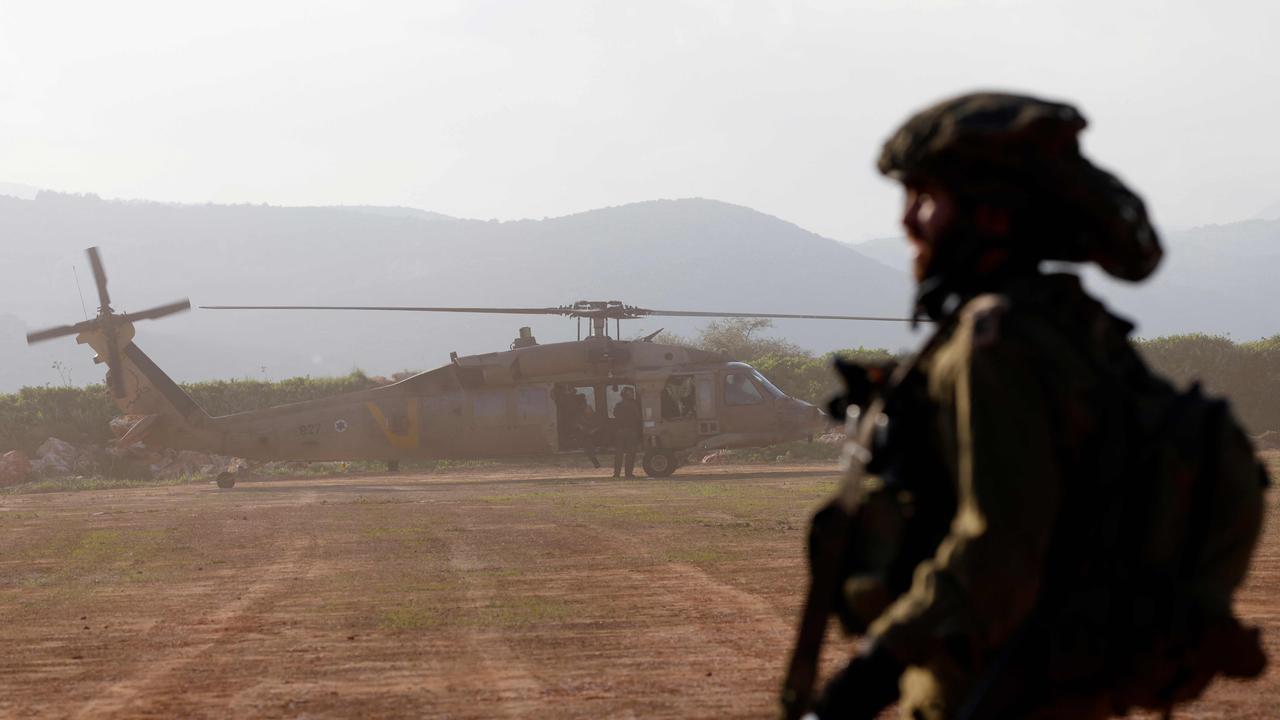
“There’s a lot of work to be done, but we are very much focused on doing that work and hopefully being able to resume the release of hostages that was interrupted [after a week-long truce in November],” Mr Blinken said after talks with Mr Netanyahu and other members of his war cabinet in Jerusalem.
An Egyptian official told AFP that “a new round of negotiations” would start on Thursday in Cairo aimed at achieving “calm in the Gaza Strip”.
Hamdan said a Hamas delegation led by senior official Khalil al-Hayya would travel to Cairo on Thursday “to follow up on” the negotiations within the framework of Egyptian-Qatari efforts.
He urged “all resistance factions … to continue the fight” and to be cautious of Israeli “treachery during the final quarter-hour of this confrontation, particularly as we are seeking to end the aggression in a way that befits the sacrifices of our people and resistance”.
A Hamas source with knowledge of the matter said the Palestinian militant group had agreed to the talks starting on Thursday, with the goal of “a ceasefire, an end to the war and a prisoner exchange deal”.
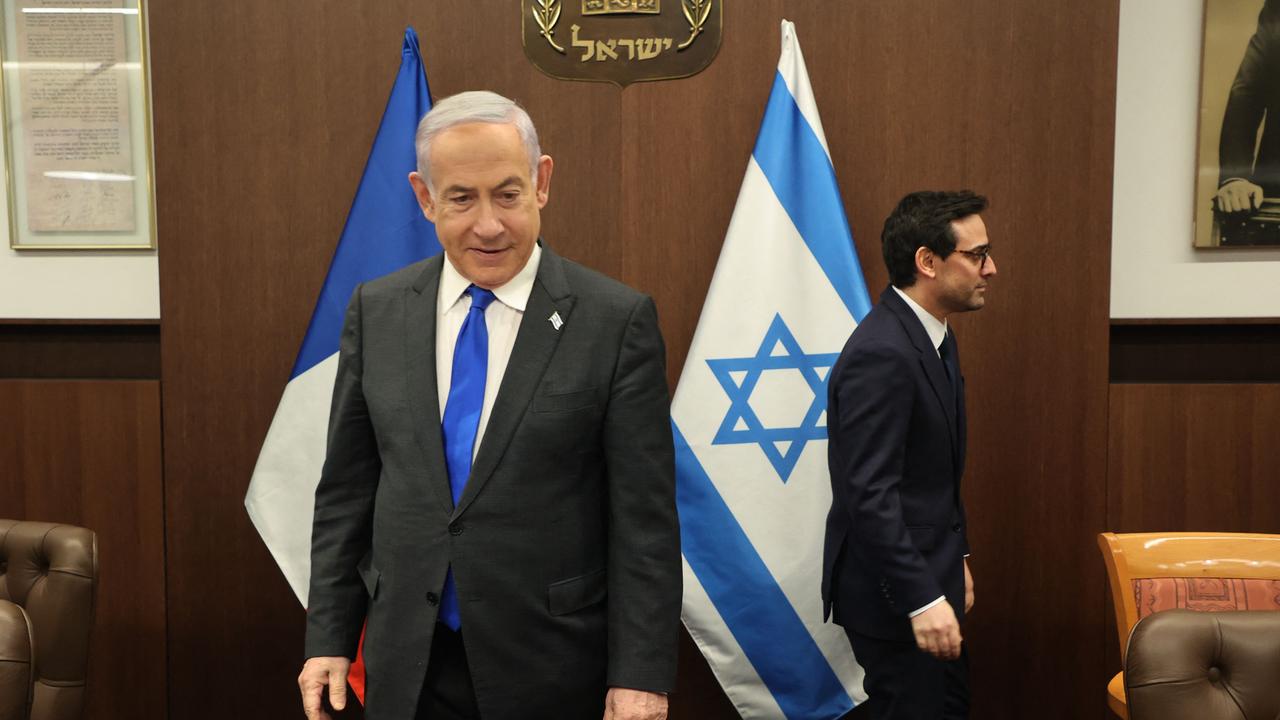
‘Total victory’
As the war entered a fifth month, Mr Netanyahu told a televised briefing that he had ordered troops to “prepare to operate” in Rafah and that a “total victory” by Israel over Hamas was just months away.
But he warned that accepting the Palestinian militant group’s “bizarre demands” for a ceasefire would not lead to the return of hostages.
“It will only invite another massacre,” Mr Netanyahu said.
Last week, a Hamas source said the proposed new truce calls for a six-week pause to fighting and a hostage-prisoner exchange, as well as more aid for Gaza, but negotiations have continued since.
Mr Blinken, on his fifth Middle East tour since the October 7 attack, also made a new plea for more aid into Gaza, whose 2.4 million people have endured a crippling siege and severe shortages of clean water, food, fuel and medical supplies.
“We all have an obligation to do everything possible to get the necessary assistance to those who so desperately need it,” Mr Blinken said, “and the steps that are being taken — additional steps that need to be taken — are the focus of my own meetings here.”
Mr Blinken later travelled to the occupied West Bank where he met Palestinian president Mahmud Abbas.

‘Living a horror movie’
For now, the war raged on unabated in Hamas-ruled Gaza, where the health ministry said at least 123 people were killed in the past 24 hours and AFP journalists reported more heavy bombing of southern cities.
UN Secretary-General Antonio Guterres said he was “alarmed” by reports that the Israeli military would push on into Rafah, where hundreds of thousands of civilians have fled to escape daily bombardments.
The city’s population has now swollen to more than one million — half of the population of the Palestinian territory.
“Such an action would exponentially increase what is already a humanitarian nightmare with untold regional consequences,” Mr Guterres said. “It is time for an immediate humanitarian ceasefire and the unconditional release of all hostages.”
AFPTV footage showed frantic scenes of Palestinians running for their lives, many screaming, as gunfire rang out from advancing Israeli forces in a Gaza City neighbourhood.
The war started with Hamas’s unprecedented attack on Israel on October 7, which resulted in the deaths of about 1160 people, mostly civilians, according to an AFP tally based on official Israeli figures.
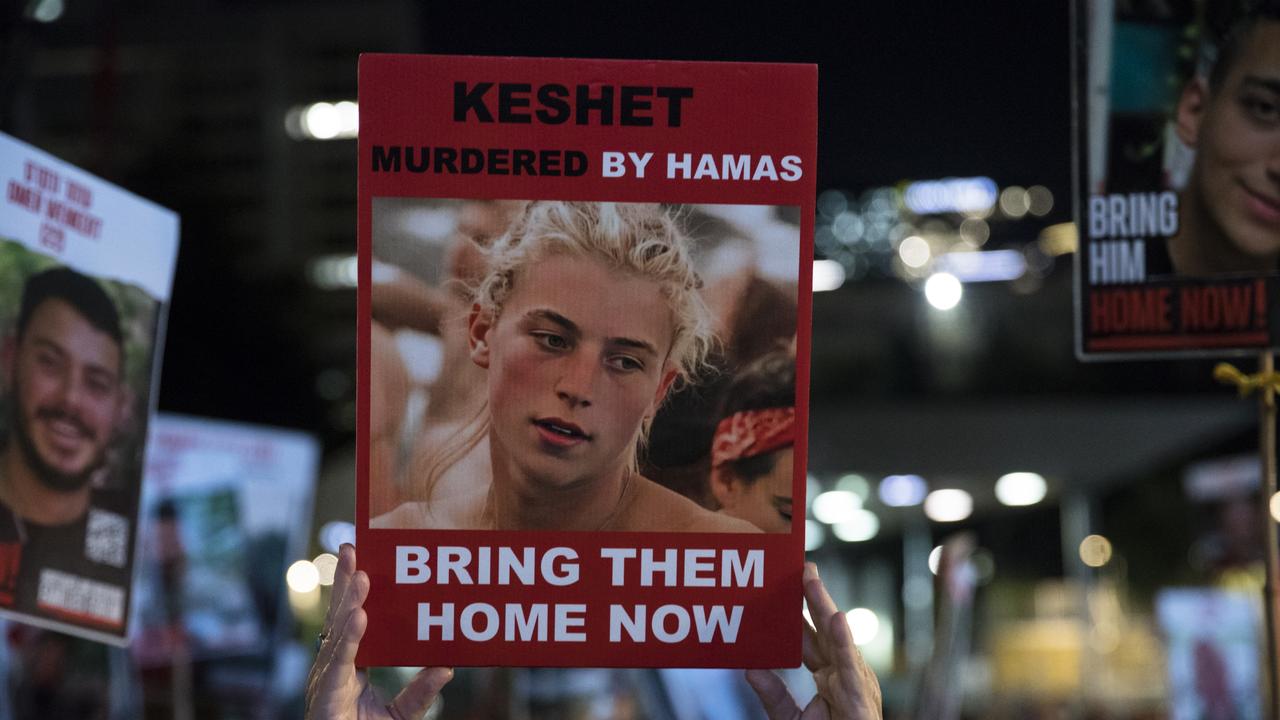
Militants also seized around 250 hostages. Israel says 132 remain in Gaza, of whom 29 are believed to have died.
Israel vowed to eliminate Hamas and launched air strikes and a ground offensive that have killed at least 27,708 people, mostly women and children, according to the Gaza health ministry.
In Israel, the Hostages and Missing Families Forum said those still in captivity “face darkness, hunger, fear, loneliness and sexual abuse” and warned that “if we don’t get them out of there immediately, they may not survive another day”.
“I am terrified that Israel will begin a ground operation in Rafah,” said Dana Ahmed, 40, who was displaced from Gaza City with her three children and now lives in a tent in Rafah.
She said she spent a sleepless night as Israeli fighter jets roared through the sky and explosions shook the ground.
“I cannot imagine what will happen to us,” she said. “Where will we go now? The situation is catastrophic. I feel like I am living a horror movie.”
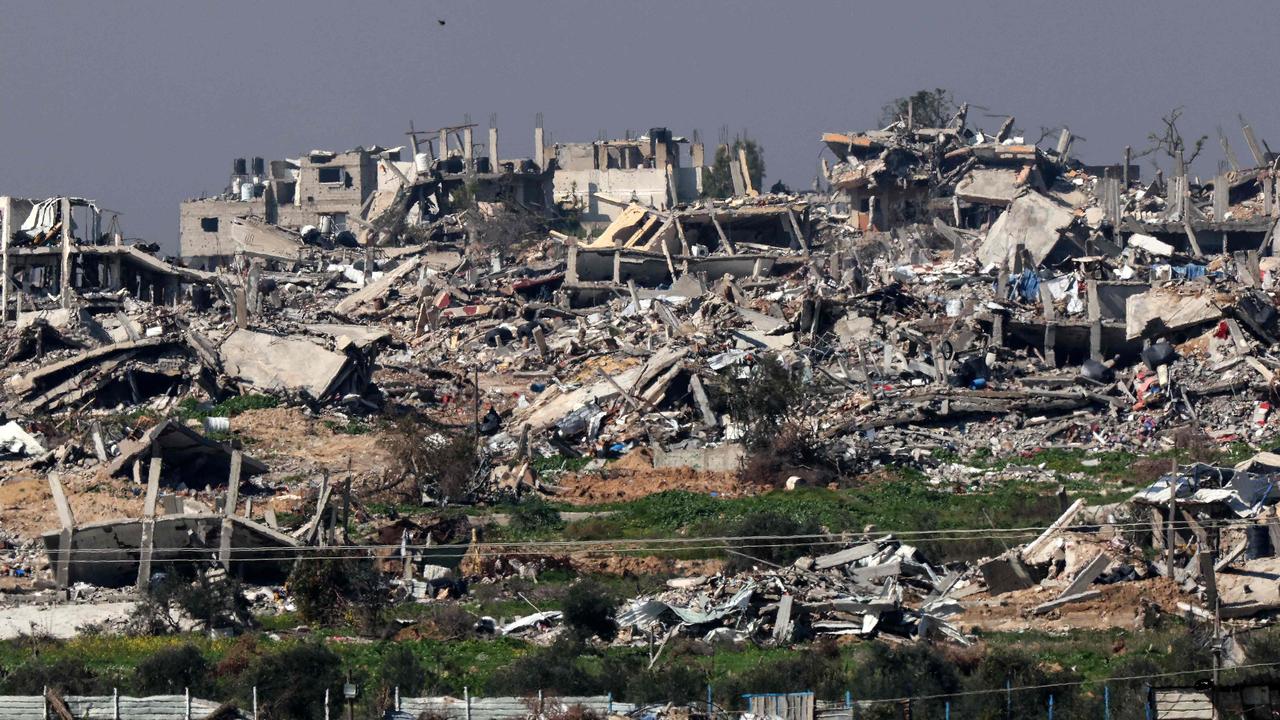
Israel destroys tunnel
Defence Minister Yoav Gallant had warned this week that the Israeli army would “reach places where we have not yet fought … right up to the last Hamas bastion, which is Rafah”.
Israeli troops have pushed steadily south through the coastal territory, with the heaviest combat raging in the city of Khan Yunis in recent weeks.
The military said it had found and destroyed a tunnel in the city that had been used by senior Hamas leaders and to hold hostages.
Soldiers unearthed what it said was a “strategic underground tunnel” stretching more than one kilometre “under the heart of a civilian area”.
“This tunnel held approximately 12 hostages at different times — three of them have been returned to Israel, and the rest are still being held in Gaza,” the army said.
Amid the Gaza war, Iran-backed groups in Lebanon, Iraq, Syria and Yemen have launched attacks in support of Hamas, and Israel, the United States and its allies have launched strikes on them.
Yemen’s Huthi rebels have targeted what they say are Israel-linked ships in the Red Sea and Gulf of Aden, disrupting global trade and prompting reprisals by US and British forces.
Last week, the United States also carried out strikes on Iran-backed groups in Syria and Iraq, killing dozens in retaliation for an attack that killed three US troops in Jordan.
Israel has also traded deadly cross-border fire with Lebanon’s Hezbollah movement and has repeatedly bombed Iran-linked targets in Syria. Lebanese state media said the latest Israeli strikes on Wednesday killed one civilian.
Israel’s military on Wednesday proposed increasing the country’s mandatory enlistment and reserve service commitments “in light of the war’s challenges”.



